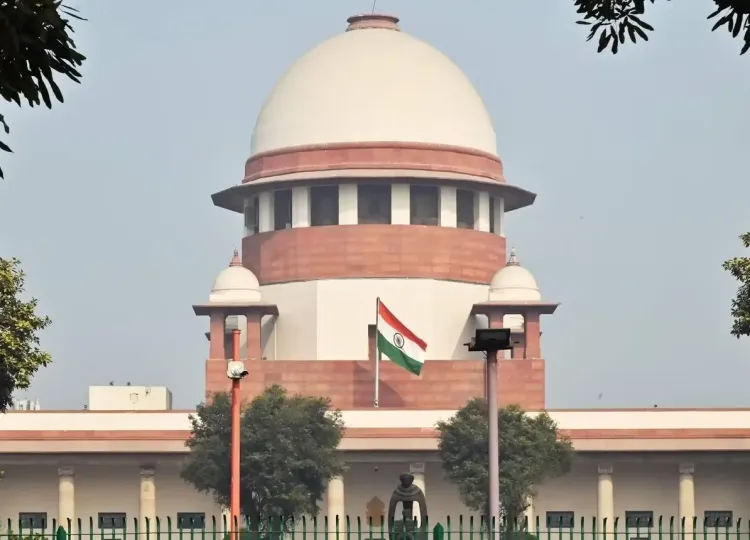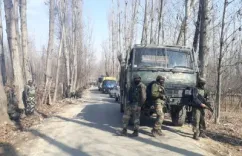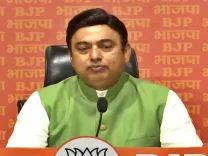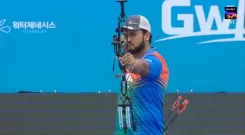Why Did the Supreme Court Deny Vikas Yadav's Interim Bail in the Nitish Katara Murder Case?

Synopsis
Key Takeaways
- The Supreme Court has denied further bail for Vikas Yadav.
- Yadav must approach the Delhi High Court for bail options.
- Witness protection was a significant factor in the decision.
- Yadav has served over two decades in prison.
- The case highlights the complexities of caste-related violence.
New Delhi, Sep 8 (NationPress) The Supreme Court has, on Monday, rejected the request to extend the interim bail of Vikas Yadav, who is a convict in the high-profile Nitish Katara murder case from 2002.
A bench comprising Justices M.M. Sundresh and Satish Chandra Sharma advised Yadav to approach the Delhi High Court for any further extension or to seek a new interim bail.
Previously, the bench led by Justice Sundresh had made it clear that Yadav’s interim bail would not be extended again for the sake of his mother’s post-operative recovery.
In a ruling from April 24 this year, the Supreme Court had granted temporary bail to Yadav until May 8, recognizing that he had served 23 years in prison.
"We are granting temporary bail to allow the petitioner to visit his unwell mother and ensure she receives appropriate medical care," the bench of Justices Abhay S. Oka and Ujjal Bhuyan had stated.
Yadav’s interim bail saw multiple extensions from the apex court.
The Supreme Court instructed Vikas Yadav, son of politician D.P. Yadav from Uttar Pradesh, to provide a bail bond of Rs one lakh along with a local surety of the same amount, and mandated that he report to the local police station every day at 11 a.m.
Additionally, the court directed him not to contact any witnesses who have testified against him, including Neelam Katara, the mother of the victim, and her close relatives.
In its ruling, the Supreme Court suggested that Yadav’s mother should be assessed by a medical board from the All India Institute of Medical Sciences (AIIMS), Delhi, and requested a medical report to be submitted by May 7.
While on interim bail, Vikas Yadav was required to stay at his Ghaziabad residence, except for visits to Yashoda Hospital, after his mother was transferred there from AIIMS Delhi.
Both Vikas Yadav and his cousin Vishal Yadav, along with others, were convicted to 25 years of actual imprisonment without remission for the kidnapping of Nitish Katara during a wedding event in February 2002, followed by his murder due to an alleged relationship with their sister Bharti Yadav.
The trial court had noted that Katara was killed because the Yadavs disapproved of his relationship with Bharti, stemming from caste differences.








